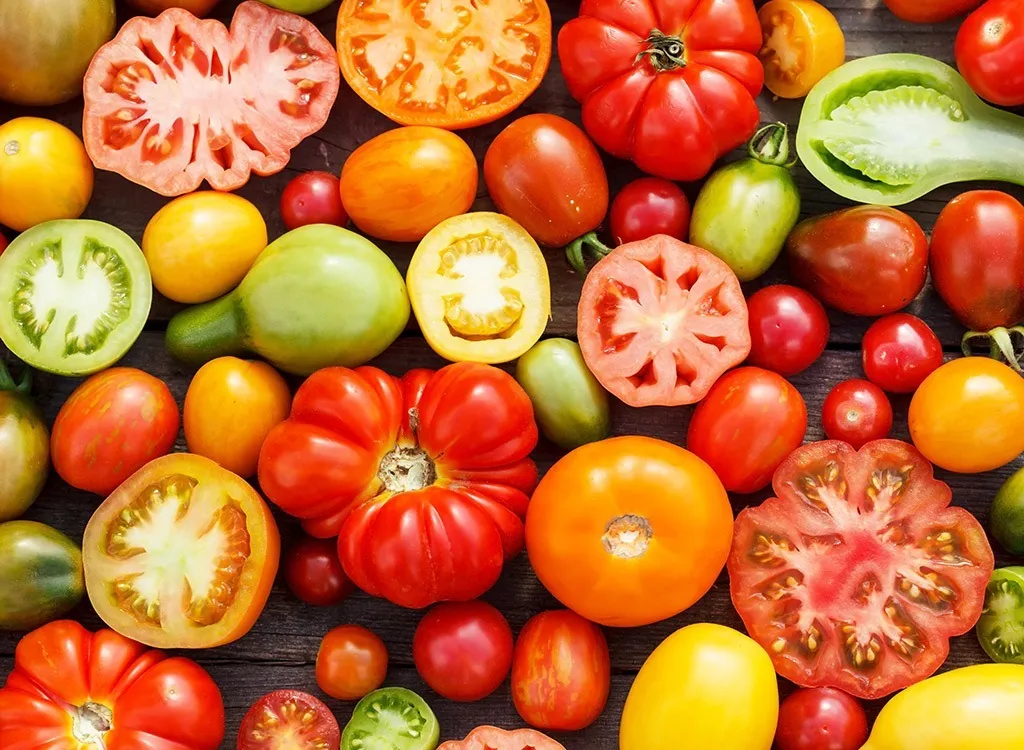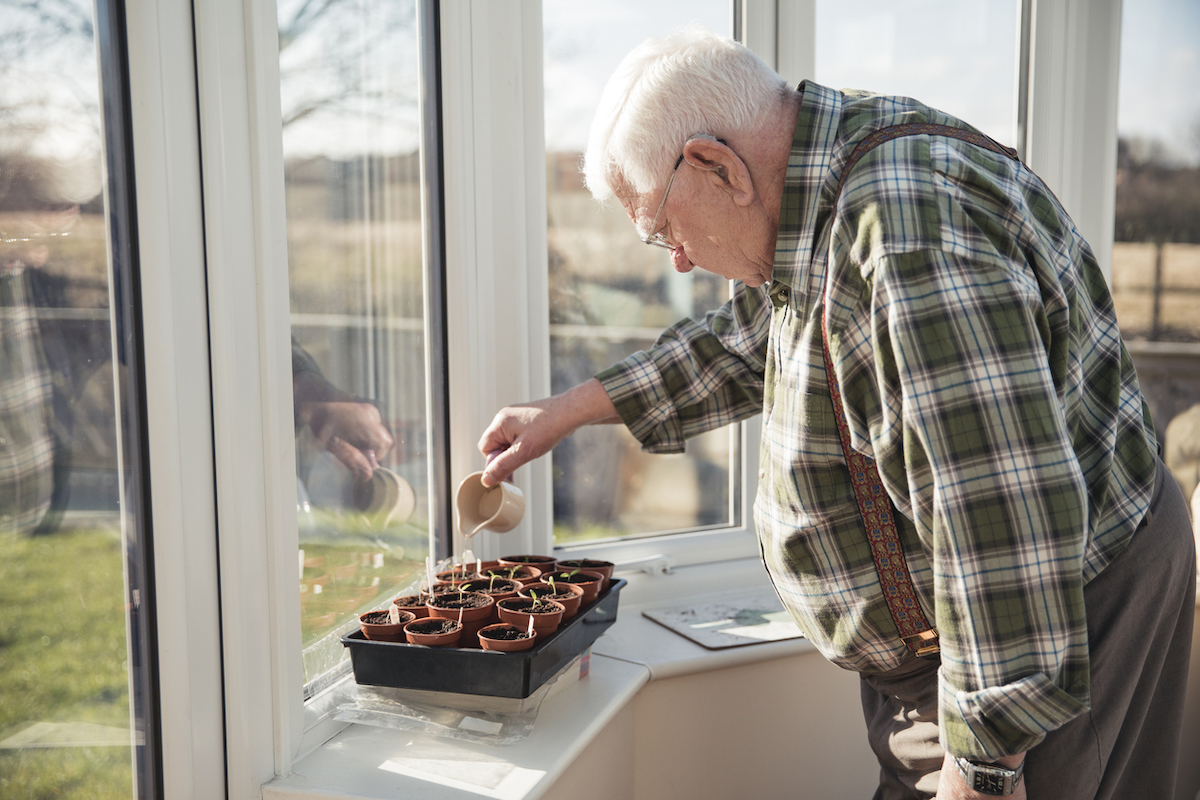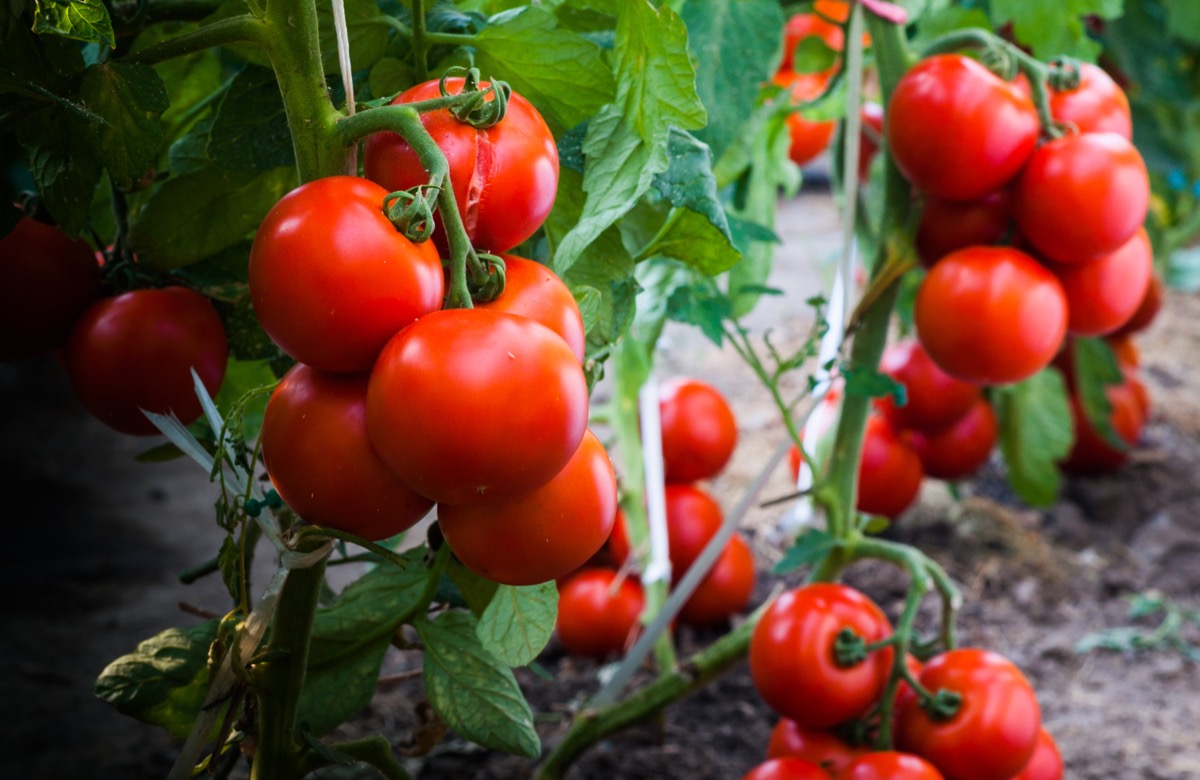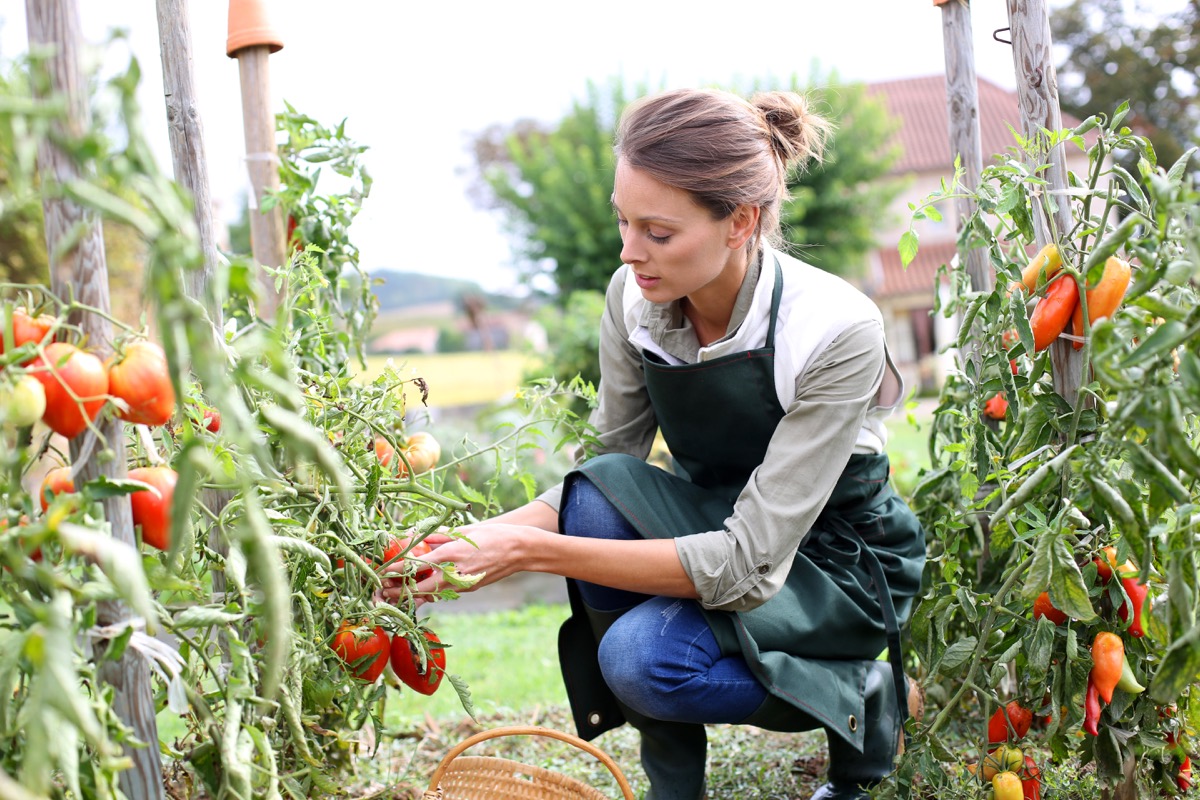Horticulture expert Scott Eckert, a Kansas State Research and Extension Agent, took to The Kansan to warn about the dangers of planting tomatoes at a time when they’re susceptible to frost damage. “Tomatoes are sensitive to frost and will not thrive in cold garden soils,” Eckert wrote. “If there is a danger of frost after plants are set, be prepared to provide temporary cover.“ae0fcc31ae342fd3a1346ebb1f342fcb Doug Oster, co-host/producer of The Organic Gardeners Radio Show, told CBS Pittsburgh’s radio station specifically that “tomatoes can’t stand even to be below 50 degrees.” “Freezing causes a darkening of the leaf or stem tissues,” according to Canada’s Ministry of Agriculture, Food and Rural Affairs. “Damaged areas later wilt and turn brown. It may be difficult, initially, to determine whether the growing point has been killed and damage may become more evident on the day after the frost.” The agency explains that tomatoes can experience “stunted growth, wilting, surface pitting or necrosis of foliage, and increased susceptibility to disease” when left in the cold. And if you spend an ample amount of time outside, If You Live Here, Look Out for These “Crazy Worms,” Experts Warn. While it’s not quite tomato-planting season outdoors yet, now’s a good time to start the seeds inside. “Producing tomato plants from seed is easy, however, it requires that they be grown inside under lights for about 8 weeks prior to setting out into the garden,” according to the professionals at the Missouri Botanical Garden’s William T. Kemper Center for Home Gardening. Doing so “gets tomatoes off to the best start in the garden when warm weather finally arrives and it saves several weeks in growing time,” note the experts at the University of Illinois Extension. And for more gardening advice, beware the 15 Ways You’re Destroying Your Garden. Your ideal planting date varies depending on where you are. But Eckert says “late April to May is the suggested transplanting date for most of eastern and central Kansas.” However, he waits until May to be safe. Oster suggests waiting until Mother’s Day, which falls on May 9 this year, to start planting tomatoes outside. Specifically, you want to learn your area’s last frost date, which is usually between May and June for most parts of the U.S. You can use the Old Farmer’s Almanac’s Frost Dates Calculator to find out the last freeze in your zip code. “Frost is predicted when air temperatures reach 32°F (0°C), but because it is colder closer to the ground, a frost may occur even when air temperatures are just above freezing,” the almanac explains. If you do jump the gun and notice frozen tomato plants in your garden, you should get rid of them and start fresh, SF Gate notes. And for more useful information delivered straight to your inbox, sign up for our daily newsletter. Tomato season ends in September of October, with the first light freeze of fall arriving in mid-October. When the season is over, SFGate says to harvest any mature fruit that’s green and get rid of the rest. They advise wrapping each tomato in a sheet of newspaper and packing them in a paper bag or cardboard box. Keep them someplace cool like your garage or basement, and when you’re ready to ripen them, take them out of the box or bag and place them in a dry area that stays around 70 degrees. Know that tomatoes’ ripening time “ranges from about 45 to 90 days,” SFGate says. And for more things to be aware of while you’re gardening, If You See This in Your Yard, Insects Are About to Invade, Expert Warns.



